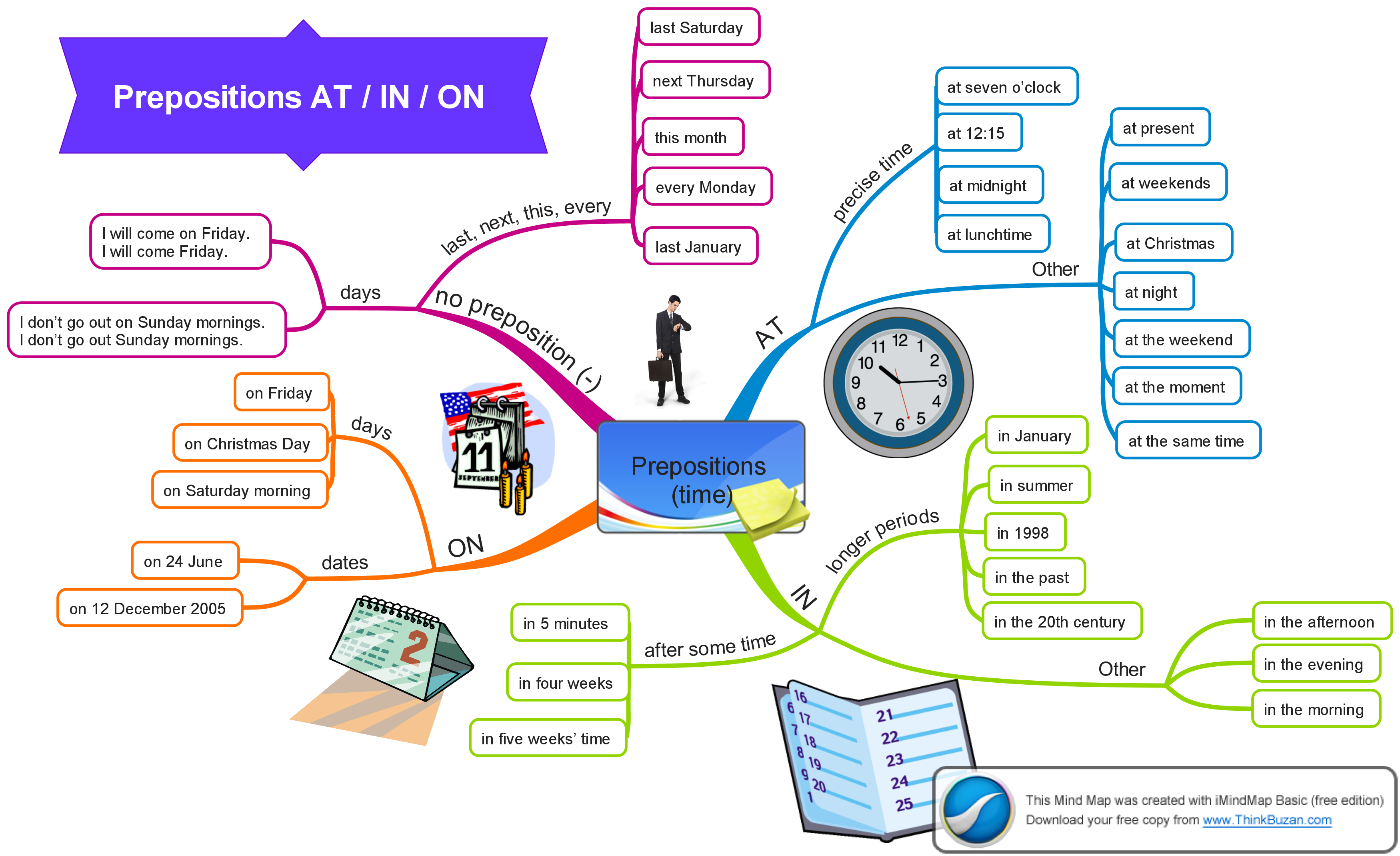You can work on this activity to practise listening comprehension and revise passive voice!
http://www.eslvideo.com/esl_video_quiz_low_intermediate.php?id=10594
Buscar este blog
Mostrando las entradas con la etiqueta Grammar. Mostrar todas las entradas
Mostrando las entradas con la etiqueta Grammar. Mostrar todas las entradas
viernes, 7 de noviembre de 2014
Answer Key SB page 145 ex. a (unit 10a)
1) were invented
2) are educated
3) was discovered
4) was woken up
5) is played
6) were recorded
7) are made
8) are sung
9) are not usually seen
10) wasn't built
2) are educated
3) was discovered
4) was woken up
5) is played
6) were recorded
7) are made
8) are sung
9) are not usually seen
10) wasn't built
viernes, 24 de octubre de 2014
Present perfect: For or Since?
Check these activities: http://www.eclecticenglish.com/grammar/PresentPerfect1D.html
viernes, 10 de octubre de 2014
KEY Revise and Check 7&8 (SB pages 66 and 67)
GRAMMAR
- A
- C
- B
- C
- B
- A
- A
- C
- C
- B
- A
- B
- B
- C
- C
VOCABULARY
a) 1 meet - 2 tell - 3 miss - 4 hope - 5 wears
b) 1 forget - 2 learn - 3 try - 4 promise - 5 enjoy - 6 mind - 7 hate - 8 finish
c) 1 very - 2 incredibly - 3 bit - 4 rather - 5 quite
d) 1 lost - 2 home/back - 3 better - 4 tickets - 5 on - 6 divorced - 7 from
CAN YOU UNDERSTAND THIS TEXT?
a) Because they are lazy.
b) 2, 4, 6, 7
CAN YOU UNDERSTAND THESE PEOPLE?
- c
- c
- a
- c
- a
viernes, 3 de octubre de 2014
Talking about possible future situations: first conditional
We are talking about the future. We are thinking about a particular condition or situation in the future, and the result of this condition. There is a real possibility that this condition will happen. For example, it is morning. You are at home. You plan to play tennis this afternoon. But there are some clouds in the sky. Imagine that it rains. What will you do? Notice that we are thinking about a future condition. It is not raining yet. But the sky is cloudy and you think that it could rain.
| IF | condition | result |
| present simple | WILL + base verb | |
| If | it rains | I will stay at home. |
STRUCTURE
More examples...
Giving advice: SHOULD / SHOULDN'T
viernes, 19 de septiembre de 2014
Time and tenses (present, past, future) - Revision
Check this presentation to revise tenses: http://es.slideshare.net/raulcabezali/review-of-verb-tenses-ef-preintermediate-6c
Online activities to practise:
Online activities to practise:
- http://www.esl-lounge.com/student/grammar/2g31-penguin-story.php
- http://esl.about.com/library/quiz/bl_lowreview.htm
- http://www.impact-english.com/members/Grammar_Practice/Always/BS-Beg-gram-quiz.htm
- http://www.english-room.com/waswere.htm
- http://a4esl.org/q/j/ck/mc-vf02.html
- http://www.englishexercises.net/yyverbs.html
- http://www.montsemorales.com/gramatica/AlltenseSw2all0.htm
- http://www.montsemorales.com/gramatica/AlltenseSw2all1.htm
- http://www.montsemorales.com/gramatica/AlltenseSw2all2.htm
sábado, 6 de septiembre de 2014
Grammar revision activities to do online (unit 7)
https://elt.oup.com/student/englishfile/preint3/grammar/file07/?cc=global&selLanguage=en
viernes, 29 de agosto de 2014
To infinitive or Ing?
When to use the to infinitive
The infinitive form is used after certain verbs:
- forget, help, learn, teach, train
- choose, expect, hope, need, offer, want, would like
- agree, encourage, pretend, promise
- allow, can/can't afford, decide, manage, mean, refuse
- forget, help, learn, teach, train
- choose, expect, hope, need, offer, want, would like
- agree, encourage, pretend, promise
- allow, can/can't afford, decide, manage, mean, refuse
- I forgot to close the window.
- Mary needs to leave early.
- Why are they encouraged to learn English?
- We can't afford to take a long holiday.
The infinitive form is always used after adjectives, for example:
- disappointed, glad, happy, pleased, relieved, sad, surprised
- disappointed, glad, happy, pleased, relieved, sad, surprised
- I was happy to help them.
- She will be delighted to see you.
When to use -ing
The -ing form is used when the word is the subject of a sentence or clause:
- Swimming is good exercise.
- Doctors say that smoking is bad for you.
The -ing form is used after a preposition:
- I look forward to meeting you.
- They left without saying "Goodbye."
The -ing form is used after certain verbs:
- avoid, dislike, enjoy, finish, give up, mind/not mind, practise
- avoid, dislike, enjoy, finish, give up, mind/not mind, practise
- I dislike getting up early.
- Would you mind opening the window?
Do you want to practise? Check this website https://learnenglish.britishcouncil.org/pt-br/grammar-reference/verbs-followed-ing-or-infinitive-1
domingo, 17 de agosto de 2014
To Infinitive
These websites offer useful explanations and practice
http://learnenglish.britishcouncil.org/es/english-grammar/verbs/infinitive
http://www.edufind.com/english/grammar/infinitive_function.php
http://www.englisch-hilfen.de/en/grammar/infinitiv_to.htm
http://learnenglish.britishcouncil.org/es/english-grammar/verbs/infinitive
http://www.edufind.com/english/grammar/infinitive_function.php
http://www.englisch-hilfen.de/en/grammar/infinitiv_to.htm
viernes, 20 de junio de 2014
Present perfect: Just, yet, already, ever, never
Hello, everybody. How are you?
Last class, we continued working on the present perfect
The following webpages are useful if you want to revise what we saw last class, or if you were absent last class and you want to tune in for tomorrow:
Last class, we continued working on the present perfect
The following webpages are useful if you want to revise what we saw last class, or if you were absent last class and you want to tune in for tomorrow:
- Here you'll find simple explanations and an interactive exercise: https://learnenglish.britishcouncil.org/es/grammar-reference/just-yet-still-already
- A nice video to revise just, already and yet: https://www.youtube.com/watch?v=SJXzXk-geP4
- Just, already, yet, ever, never - explanation + activities http://www.grammarbank.com/ever-never-just-already-yet.html
- More activities: http://www.agendaweb.org/grammar/still-already-yet-exercises.html
See you tomorrow!! :)
lunes, 16 de junio de 2014
Present perfect in movies!
Here you'll find scenes from different movies in which they use the present perfect tense.
viernes, 13 de junio de 2014
Have you ever...? Life experiences (Present Perfect)
Check these videos:
World Cup 2014
The World Cup has started!
Here are some interesting sites to visit:
- How much do you know about the World Cup? Find out by doing this quiz.
- An article about Messi and all the pressure he has in this World Cup: Article "The Burden of Begin Messi"
- Who do you think will win the World Cup? http://www.jdaenglish.com/wce-who-will-win/
- Some listening and vocabulary activities about the World Cup:
http://www.esolcourses.com/content/topics/sport/football/fans/brazilian-superfan-lesson-activities.html
http://www.esolcou'rses.com/content/topics/sport/football/world-cup-picture-quiz.html
- Let's revise nationalities! http://www.esolcourses.com/content/topics/countriesandnationalities/world-cup/countries-nationalities-quiz.html
Enjoy! :)
See you tomorrow!
Here are some interesting sites to visit:
- How much do you know about the World Cup? Find out by doing this quiz.
- An article about Messi and all the pressure he has in this World Cup: Article "The Burden of Begin Messi"
- Who do you think will win the World Cup? http://www.jdaenglish.com/wce-who-will-win/
- Some listening and vocabulary activities about the World Cup:
http://www.esolcourses.com/content/topics/sport/football/fans/brazilian-superfan-lesson-activities.html
http://www.esolcou'rses.com/content/topics/sport/football/world-cup-picture-quiz.html
- Let's revise nationalities! http://www.esolcourses.com/content/topics/countriesandnationalities/world-cup/countries-nationalities-quiz.html
Enjoy! :)
See you tomorrow!
sábado, 7 de junio de 2014
Life Experiences: present perfect
Two useful webpages and a video!
Enjoy
http://www.ecenglish.com/learnenglish/lessons/present-perfect-life-experiences
http://www.slideshare.net/joseluiscaro/present-perfect-for-past-experiences
Enjoy
http://www.ecenglish.com/learnenglish/lessons/present-perfect-life-experiences
http://www.slideshare.net/joseluiscaro/present-perfect-for-past-experiences
lunes, 19 de mayo de 2014
Present Continuous: Future meaning
Hello, everybody!
I've found this video with a complete explanation of the present continuous for future use. The explanation is in Spanish, but I think it is complete and it might be useful for some of you. http://www.blueblocnotes.com/grammar/future-tenses/present-continuous-future
The only thing that's not included on the video is the idea of ARRANGEMENTS that we talked about last class. Here's a useful explanation of this: http://www.edufind.com/english/grammar/future_arrangements.php
Here you'll find the difference between present continuous (future) and be going to: http://www.myenglishpages.com/site_php_files/grammar-lesson-future-plan.php#.U3pZX_l5OBw
I hope it's useful!
I've found this video with a complete explanation of the present continuous for future use. The explanation is in Spanish, but I think it is complete and it might be useful for some of you. http://www.blueblocnotes.com/grammar/future-tenses/present-continuous-future
The only thing that's not included on the video is the idea of ARRANGEMENTS that we talked about last class. Here's a useful explanation of this: http://www.edufind.com/english/grammar/future_arrangements.php
Here you'll find the difference between present continuous (future) and be going to: http://www.myenglishpages.com/site_php_files/grammar-lesson-future-plan.php#.U3pZX_l5OBw
I hope it's useful!
jueves, 1 de mayo de 2014
REVISION: Prepositions of Time (at - in - on)
Some explanations:
http://www.english-4u.de/prepositionoftime.htm (focus on AT - IN - ON)
http://www.englisch-hilfen.de/en/grammar/preposition_time.htm (focus on AT - IN - ON)
Activities:
http://www.perfect-english-grammar.com/time-prepositions-exercise-2.html
http://www.agendaweb.org/grammar/prepositions-of-time-exercises.html
Grammar Practice: PAST SIMPLE vs. PAST CONTINUOUS
Hi, again!
Here is some grammar practice for you to do online!
PAST SIMPLE
Here you'll find a simple explanation and some practice activities: http://www.ego4u.com/en/cram-up/grammar/simple-past
And here there are A LOT of activities!! Just choose what you want to revise and practice: http://www.agendaweb.org/verbs/past_simple-exercises.html
PAST CONTINUOUS
A simple explanation and some practice: http://www.learnenglish-online.com/grammar/pastcontinuous.html
PAST SIMPLE VS. PAST CONTINUOUS
Explanation and practice! http://www.ego4u.com/en/cram-up/grammar/simpas-paspro
http://www.englishexercises.org/makeagame/viewgame.asp?id=734
Funny situations: http://www.englishexercises.org/makeagame/viewgame.asp?id=7846
Here is some grammar practice for you to do online!
PAST SIMPLE
Here you'll find a simple explanation and some practice activities: http://www.ego4u.com/en/cram-up/grammar/simple-past
And here there are A LOT of activities!! Just choose what you want to revise and practice: http://www.agendaweb.org/verbs/past_simple-exercises.html
PAST CONTINUOUS
A simple explanation and some practice: http://www.learnenglish-online.com/grammar/pastcontinuous.html
PAST SIMPLE VS. PAST CONTINUOUS
Explanation and practice! http://www.ego4u.com/en/cram-up/grammar/simpas-paspro
http://www.englishexercises.org/makeagame/viewgame.asp?id=734
Funny situations: http://www.englishexercises.org/makeagame/viewgame.asp?id=7846
Suscribirse a:
Entradas (Atom)








